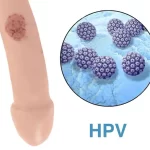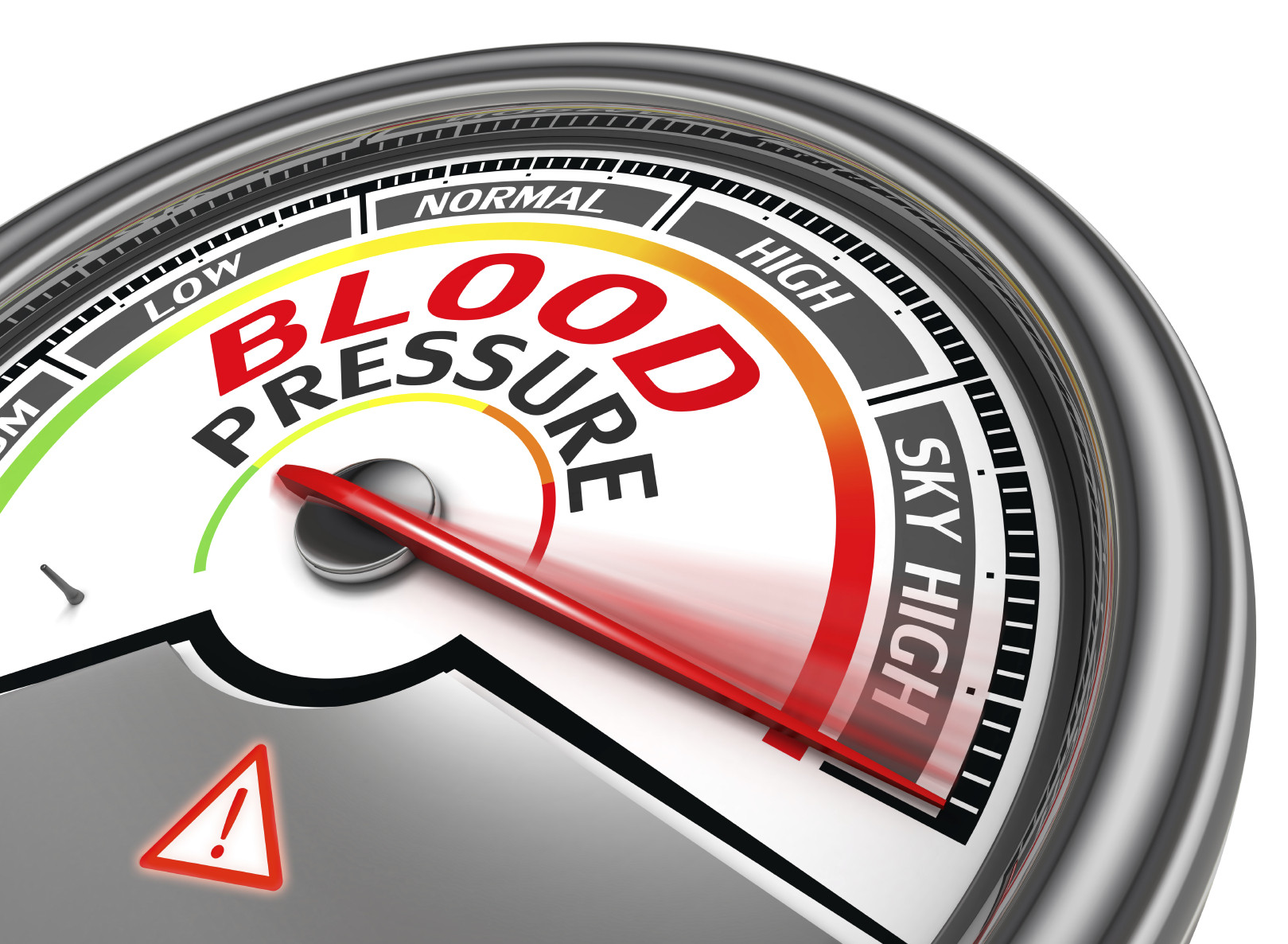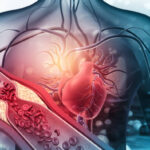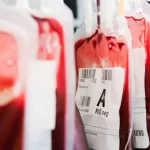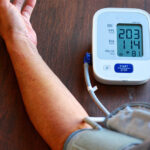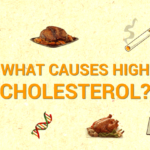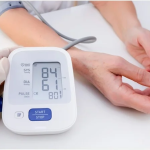What Causes High Blood Pressure?
What causes high blood pressure? This is a serious question, however, to understand this very fast, blood pressure (BP) refers to the force exerted by circulating blood on the walls of the arteries. When BP consistently exceeds normal levels, it is known as hypertension.
A BP reading comprises two measurements: systolic BP and diastolic BP.
Systolic BP represents the pressure in the arteries when the heart beats, while diastolic BP represents the pressure when the heart rests between beats.
A healthy BP reading is typically ≤120/80 millimeters of mercury (mmHg), with the first value indicating systolic BP and the second diastolic BP.
BP varies throughout the day, increasing during physical exertion or stressful situations when the heart pumps more vigorously. Age also affects BP, as arterial walls tend to harden and lose elasticity over time, resulting in higher systolic and diastolic values.
Factors such as smoking, alcohol consumption, caffeine intake, and recent physical activity can elevate BP readings if measured within 30 minutes of these activities. Additionally, improper posture, like crossing legs or not resting the arm at chest height, can also affect BP measurements.
According to the 2017 guidelines by the American College of Cardiology and the American Heart Association, a BP reading of ≥130/80 mmHg is classified as hypertension.
In contrast, the seventh report from the Joint National Committee on Prevention, Detection, Evaluation, and Treatment of High Blood Pressure (2003) considers a reading of ≥140/90 mmHg as hypertension.
Impact of Hypertension on Health
High blood pressure (BP) poses significant risks to various organs and bodily functions, impacting overall health in several ways.

Cardiovascular System
High BP contributes to the hardening and narrowing of arteries, a condition known as atherosclerosis. This reduces blood flow and oxygen supply to the heart muscle, increasing the risk of:
- Cardiovascular Diseases: Hypertension is a major risk factor for conditions such as coronary artery disease, which can lead to angina (chest pain) and myocardial infarction (heart attack).
- Heart Failure: The heart must work harder to pump blood against increased resistance, potentially leading to the weakening of the heart muscle over time.
Brain
Elevated BP can damage the blood vessels in the brain, increasing the likelihood of:
- Stroke: High BP can cause blood vessels to burst or become blocked, depriving the brain of oxygen and nutrients. This can result in a stroke, leading to brain cell death and potentially causing impairments in speech, movement, and other vital functions.
- Cognitive Impairment: Chronic hypertension, especially in midlife, has been linked to accelerated cognitive decline and an increased risk of dementia later in life.
Kidneys
The kidneys filter blood and remove waste products. High BP can damage the delicate blood vessels in the kidneys, leading to:
- Renal Disorders: Hypertension is a primary cause of chronic kidney disease (CKD) and can progress to kidney failure if left untreated.
Eyes
The eyes rely on a steady blood supply for optimal function. Hypertension can lead to:
- Vision Loss: Damage to the blood vessels in the eyes (retinopathy) can result in vision impairment or even blindness over time.
Sexual Health
Hypertension can affect sexual function in both men and women:
- Erectile Dysfunction (ED): Men with hypertension may experience difficulties achieving or maintaining an erection due to reduced blood flow to the genitals.
- Lowered Libido: Women with high BP may experience decreased sexual desire and arousal.
Managing and controlling blood pressure through lifestyle changes (such as diet, exercise, and stress management) and, when necessary, medication, is crucial in preventing or mitigating the serious health consequences associated with hypertension.
Regular monitoring of BP levels and prompt medical intervention can significantly reduce the risk of heart disease, stroke, kidney damage, vision loss, and other complications linked to high blood pressure.
Types and Risk Factors for Hypertension
Types of Hypertension
Hypertension can be classified into two main types:
- Primary or Essential Hypertension: Primary hypertension occurs without a specific underlying cause and accounts for approximately 95% of hypertension cases. It develops gradually over many years. The exact mechanisms leading to primary hypertension are complex and often involve changes in the structure or function of small arteries, which can lead to increased resistance to blood flow and elevated blood pressure (BP).
- Secondary Hypertension: Secondary hypertension arises from an identifiable underlying medical condition or external factor that causes high BP. This type accounts for about 5% of hypertension cases and can occur suddenly. Causes of secondary hypertension include:
- Kidney Disorders: Such as chronic kidney disease or kidney artery narrowing (renal artery stenosis).
- Hormonal Disorders: Including disorders of the adrenal glands (such as Cushing’s syndrome, Conn’s syndrome) or thyroid disorders.
- Obstructive Sleep Apnea: Characterized by interrupted breathing during sleep, leading to increased BP during the night.
- Medications: Certain drugs, such as non-steroidal anti-inflammatory drugs (NSAIDs), corticosteroids, oral contraceptives, and some antidepressants, can elevate BP.
- Illegal Drugs: Substances like amphetamines, methamphetamines, and cocaine are known to cause hypertension.
- Other Medical Conditions: Such as pheochromocytoma (a rare adrenal gland tumor), coarctation of the aorta (a congenital heart defect), and pregnancy-induced hypertension (preeclampsia).
Risk Factors for Hypertension
Several factors increase the likelihood of developing hypertension:
- Family History: Hypertension tends to run in families, suggesting a genetic predisposition to the condition. Individuals with a family history of hypertension are at higher risk.
- Medical Conditions: Certain medical conditions, including diabetes mellitus, chronic kidney disease, and autoimmune disorders like lupus, increase the risk of hypertension.
- Lifestyle Factors: Lack of physical activity, poor diet (high in salt and low in potassium), excessive alcohol consumption, and smoking contribute to the development of hypertension.
- Age and Gender: The risk of hypertension increases with age, and men are generally at higher risk than pre-menopausal women. However, after menopause, women’s risk catches up.
- Ethnicity: Some ethnic groups, such as African Americans, are more prone to developing hypertension.
- Stress and Personality Type: Chronic stress and certain personality traits, such as hostility and type A behavior, may contribute to hypertension.
- Cholesterol Levels: Elevated levels of LDL cholesterol (bad cholesterol) and low levels of HDL cholesterol (good cholesterol) are associated with an increased risk of hypertension.
- Infectious Diseases: Viral infections like SARS-CoV-2 (COVID-19) can also lead to acute increases in blood pressure, especially in severe cases.
Understanding the types and risk factors associated with hypertension is crucial for prevention, early detection, and management of this prevalent health condition. Lifestyle modifications, regular medical check-ups, and targeted treatments can help mitigate the risks and complications associated with high blood pressure.
SEE ALSO: Causes of Hypertension in Young Adults
Diagnosis and Management of Hypertension
Hypertension, often dubbed the “silent killer,” typically manifests without noticeable symptoms but can lead to serious health complications if left untreated. Understanding its risk factors, diagnosis, and management strategies is crucial for maintaining cardiovascular health.
Risk Factors for Hypertension
Several factors contribute to the development of hypertension:
- Age and Gender: Arteries tend to stiffen with age, increasing the likelihood of elevated blood pressure. Men are more prone to hypertension before the age of 55, while women have a higher risk post-menopause due to hormonal changes.
- Ethnicity: Individuals of African or Caribbean descent face a heightened risk of hypertension.
- Dietary Factors: High consumption of dietary salt and caffeine, coupled with low intake of potassium, fiber, and protein from fresh fruits and vegetables, can exacerbate hypertension.
- Lifestyle Habits: Smoking, tobacco, and alcohol use, along with physical inactivity, contribute to elevated blood pressure.
- Cholesterol Levels: High levels of LDL (bad) cholesterol can lead to atherosclerosis, narrowing arteries and raising BP.
- Sleep and Stress: Inadequate sleep, type A personality traits, and chronic stress are associated with increased hypertension risk.
- Pregnancy: Gestational hypertension can occur during pregnancy, potentially leading to complications such as preeclampsia and eclampsia.
Impact of COVID-19 on Hypertension
Recent studies suggest that COVID-19 infection can elevate both systolic and diastolic BP. The virus affects blood pressure regulation through mechanisms involving angiotensin-converting enzyme 2 (ACE2) and the renin-angiotensin-aldosterone system (RAAS), potentially leading to new-onset hypertension in some cases.
Diagnosis of Hypertension
Hypertension is diagnosed by measuring blood pressure using sphygmomanometers and BP monitors. It is crucial to monitor BP regularly, especially in individuals at risk or with a family history of hypertension.
White coat syndrome, where BP readings are higher in medical settings due to anxiety, should also be considered.
Management Strategies
Effective management of hypertension involves lifestyle changes and, when necessary, medication:
- Lifestyle Modifications: Regular aerobic exercise (e.g., walking, cycling), totaling at least 150 minutes per week, helps lower BP. Smoking cessation, reducing sodium intake (<1,500 mg/day), managing alcohol consumption, maintaining a healthy weight, and controlling blood glucose levels are essential.
- Diet: Adopting the DASH (Dietary Approaches to Stop Hypertension) diet, rich in fruits, vegetables, whole grains, and low-fat dairy products, is recommended. Avoiding high-fat, high-salt processed foods and snacks is crucial.
- Alcohol Consumption: Limiting alcohol intake to no more than two drinks per day for men and one drink per day for women can help lower hypertension risk.
- Blood Pressure Medications: First-line medications include ACE inhibitors (e.g., enalapril), ARBs (e.g., losartan), calcium channel blockers (e.g., amlodipine), and diuretics (e.g., indapamide). These drugs help regulate BP by different mechanisms, such as reducing blood vessel constriction and fluid retention.
Conclusion
Early diagnosis and effective management of hypertension are vital for reducing the risk of cardiovascular complications. By addressing risk factors through lifestyle changes and, when necessary, medication, individuals can maintain healthy blood pressure levels and improve overall cardiovascular health.
Regular monitoring and adherence to treatment plans are essential to mitigate the impact of hypertension on long-term health outcomes.
References
- https://www.nhs.uk/conditions/high-blood-pressure-hypertension/ – High blood pressure (hypertension)
- http://www.nice.org.uk/nicemedia/live/13561/56015/56015.pdf – Hypertension in adults: diagnosis and management
- apps.who.int/iris/bitstream/10665/79059/1/WHO_DCO_WHD_2013.2_eng.pdf – A global brief on Hypertension
- https://healthy.kaiserpermanente.org/washington/front-door
- https://www.cdc.gov/bloodpressure/about.htm – High Blood Pressure Symptoms and Causes

A graduate of Computer Science and Information Management Technology. Diploma – Caregiving, Certificates – Dementia and Diabetes Awareness and Management. A researcher, blogger, songwriter, singer and acoustic guitarist. Born in an environment where natural talents such as healing are imparted at our natural birth. This natural talents of healing is the result of our genetic inheritance and the training from family environment.







